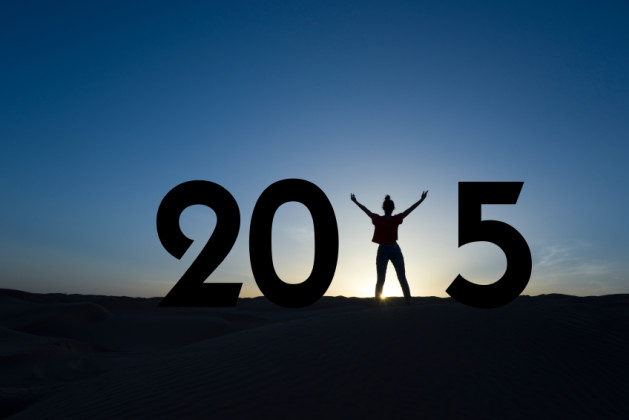Don’t change yourself to make the CEOs in the diet, fashion, or fitness industry any richer.
For some of us, the New Year beckons with promises of fresh beginnings, a blank slate over the horizon of the harried and muddled holidays that begs to be filled. Collectively we launch new ways of eating, new exercise plans, new creative projects and spiritual practices that have lurked at the back of closets and our psyches for years.
So why do so many of these best efforts fail? I’ve fallen prey to this urge many, many times myself. I have the half-finished daily planners, still firm meditation cushions and clean, unopened cookbooks to prove it.
Science would suggest the failure of your resolutions is not because you lack commitment or dedication, but is a matter of willpower, or lack thereof—a process that takes place in the prefrontal cortex of the brain. Willpower, according to the American Psychological Institute, is a delay of short-term temptations for long-term goals. But it turns out that it’s not a matter of being “good” or “bad” at it; rather, just like winter-soft muscles, if you haven’t been engaging your willpower for any one of the many things on your to-do resolution list, your follow-through will be weak and, most likely fail, like trying to do a pull-up with a broken arm.
But willpower aside, what makes January 1 any more of a “beginning” than your own birthday, or the first day of spring? In North America, January is a cold, dark, often gloomy time of year—not exactly my idea of a “beginning.” If anything, the New Year lends itself more to a time of taking stock and tying up loose ends in preparation for spring, the real season of renewal, when nature leads the way in showing us how to awaken.
When the bulbs I planted in fall peek up their green shoots end of March, my desire to get back to things I’ve put off, or to start new ones altogether, awakens. They don’t call it “spring cleaning” for nothing. Yes, unless you live somewhere tropical (like my friend in New Zealand, or my cousin in Uruguay who could celebrate Christmas in their bathing suits) winter is a time of hibernation. New regimes are counter-intuitive to our body’s internal rhythms.
I understand the urge to undertake big change, especially after holiday planning and get togethers, the stark reality of finances after the fact and the general sense of nothing-to-do which lands with a thud, the post-holiday blues. There are no more parties or packages to prepare for months to come, and if you live in North America, it’s also winter: the trees are bare, you might be in the grip of a polar vortex of freezing proportions or a pineapple express of unending rain.
In a word: the New Year can be a little depressing. The idea of starting something new, then, is compelling, creates a brief, shiny little kernel of hope for you to run doggedly after, like a jogger on a treadmill.
You may also be buying into the collective myth that your life is not good enough as it is. Now that your big holiday distractions are out of the way you may hope to remake yourself. But it’s a false hope, built on untrue messages sold by advertisers that there is something you must change about yourself (for just 3 installments of $39.99!)—whether external or internal. Don’t change yourself to make the CEOs in the diet, fashion, or fitness industry any richer. If there’s something so wrong with your life that it needs an entire new program to change it, perhaps you need therapy, meditation, or religion, not a New Year’s resolution.
I propose a different approach to the New Year: not setting up a whole new plan or program at all, but resting up and taking inventory in anticipation of the months to come. Journal and dream. Cozy up and be still.
The closest thing to a resolution that seems to bear any merit is something several people I admire have adopted: setting a “theme” or “intention” for the year, like “Courage” or “Ease.” I like the idea of an overarching guide under which you can continually ask yourself if your life choices fit your vision. As long as you remember that is all it is: A vision, an outline, a series of suggestions for your life, but not hard and fast rules designed to make you feel shame and discouragement when you don’t come through.
I say, toss your big plans at January 1 to revolutionize yourself and instead. Hunker down, sink into yourself, and survey what bounty is behind while you plan for the awakening of spring.
Jordan Rosenfeld is author of the writing guides Make a Scene, Write Free, and the novels Forged in Grace, and Night Oracle. Her essays have appeared or are forthcoming in: Brain, Child, Modern Loss, Role Reboot, The Rumpus, the St. Petersburg Times, San Francisco Chronicle and more.
Related Links:

